Wet weather wreaking havoc on suckler grazing plans - Adam Woods
Wet weather continues to wreak havoc on grazing plans and turnout on beef farms in many parts of the country.
Analysis from the Irish Farmers Journal shows the cost of feeding a 25-cow spring-calving suckler herd with 20 weanlings also housed, where silage and meal are being purchased at just over €1,000/week.
A cow eating 45kg of silage (€50/t) a day, along with 2kg meal/day (€420/t), is costing €3.09/day.
On many farms, calves are also eating creep at a rate of 1kg to 2kg/day, which is costing as much as €0.84/day.
That’s just over €1,000/week in feed and bedding on a 25-cow farm
This means the cow and calf is costing €3.93/day in feed costs. Throw in a round bale of straw each week to bed a creep area and that’s another 20c/day - so it’s €4.13/day to keep cows going indoors at the moment (or €29/week).
On a 25-cow herd, it’s €725/week.
If 20 weanlings were also being fed purchased silage and meal, that comes into another €280/week based on ad-lib silage and 2kg meal/head a day. That’s just over €1,000/week in feed and bedding on a 25-cow farm.
Sheds in yards are at peak capacity, with a big increase in labour required due to animals being indoors for a prolonged period.
In a normal year, a lot of these cattle would be out at grass at a fraction of the feed costs and a lot less labour requirements.
Feed costs are spiralling on farms, with animal feed companies reporting record meal deliveries for March.
Costs mounting on dairy farms - Aidan Brennan
The costs of the bad weather are mounting on dairy farms, with extra meal and silage being fed because land is just too wet to graze in many instances.
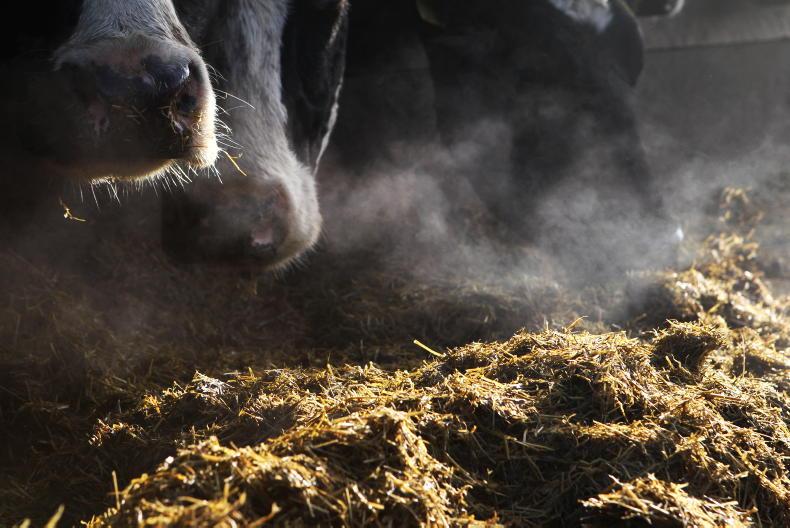
In most cases, farmers are still feeding 4kg of meal/cow each day, whereas they would normally be down to 2kg/day by now. At €450/t, this is an extra cost of €630/week for a 100-cow herd.
More silage is being fed on days where cows cannot graze.
Where cows are housed at night, they will eat at least 7kg dry matter (DM) of silage at a cost of 40c/kg DM. This adds an extra €2,000/week for a 100-cow herd.
The hidden cost of the bad weather is lost production.
According to the latest milk recording data from the Irish Cattle Breeding Federation (ICBF), milk yield is back by over 2l per cow/day compared to the same period last year.
Not only are cows milking less, they are also generating a lower price for every litre produced because the protein is so low
Furthermore, average milk protein is at 3.24% this week, whereas it was at 3.39% this time last year.
Not only are cows milking less, they are also generating a lower price for every litre produced because the protein is so low.
As a result of this, milk receipts will be back over €700/week on a 100-cow herd.
Between higher feed costs and lower output, the cost of the bad weather is projected at being just under €3,300/week for a 100-cow herd.
No respite for outdoor lambing flocks - Darren Carty
The return of inclement weather is hitting at possibly the worst timeframe for later and outdoor lambing flocks - any improvement in ground conditions at the end of last week has well and truly been reversed.

Over 34mm of rainfall was recorded in Athenry from Sunday to Tuesday, with a further deluge on Wednesday thanks to Storm Noa.
Other parts along the western seaboard received around 20mm before Wednesday, while in other areas of the country, Storm Noa brought hail showers, sleet and snowfall.
The indirect effect for many flocks will be a further delay in applying fertiliser, challenging grass utilisation and higher feed costs
The direct effect of the harsh weather over the last number of days is higher lamb mortality, with flocks currently lambing outdoors or with recently turned-out ewes and young lambs reporting lambs succumbing to the elements.
The indirect effect for many flocks will be a further delay in applying fertiliser, challenging grass utilisation and higher feed costs.
For example, lactating ewes receiving 0.5kg to 1kg concentrates daily to conserve grass supplies is racking up costs of €1.68 to €3.36/week.
Over a 100-ewe flock, this equates to €168 to €336/week with costs possibly twice as high where turnout is significantly delayed or grass reserves have been depleted.





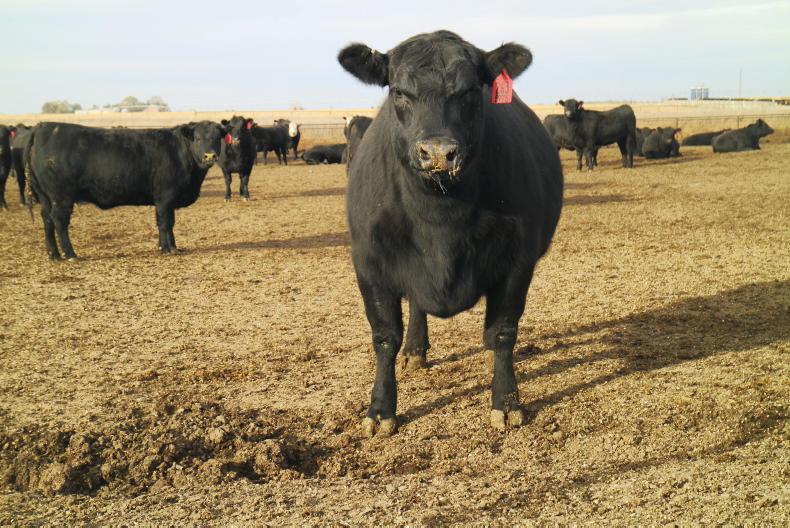

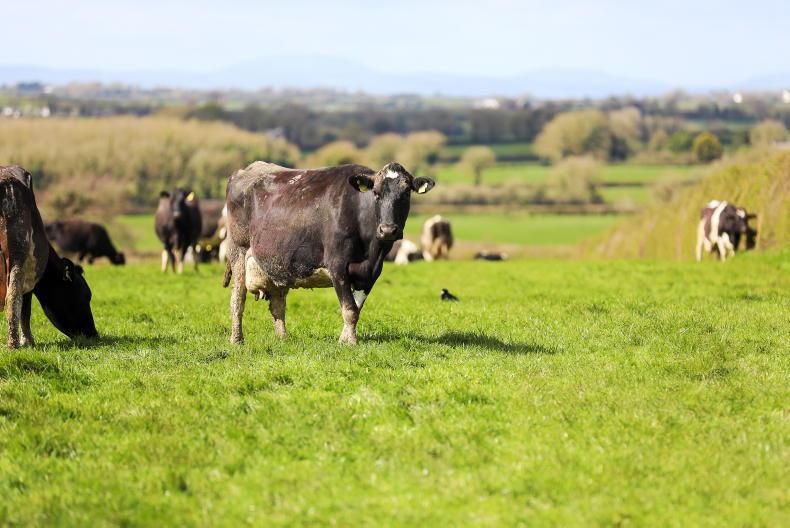
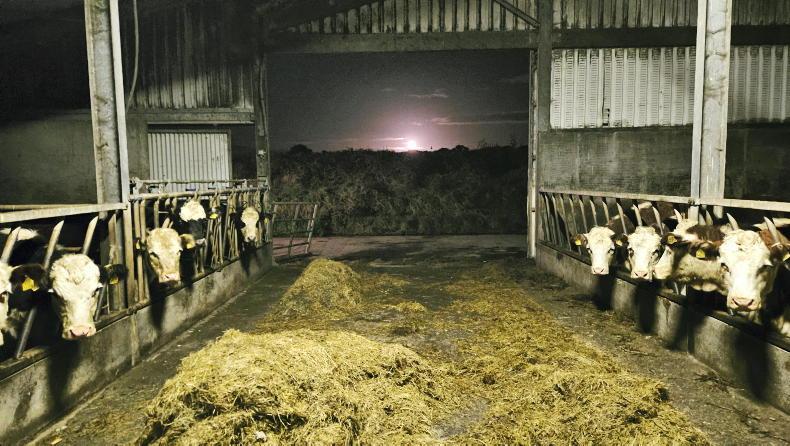
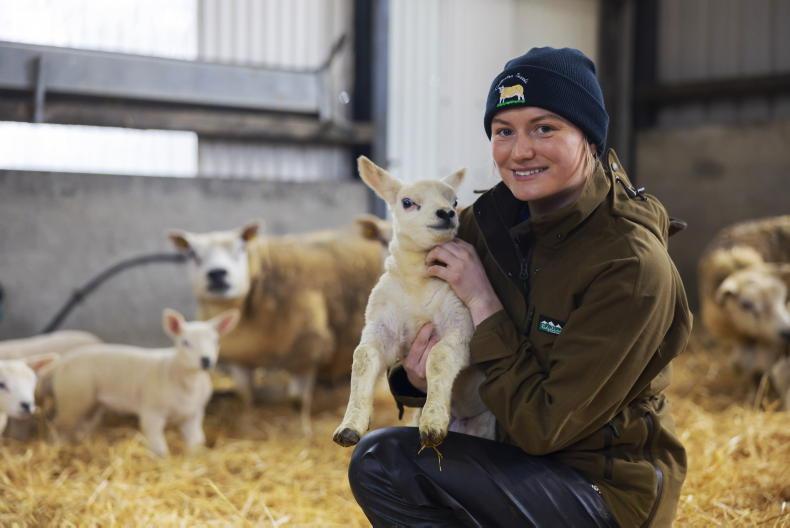
SHARING OPTIONS